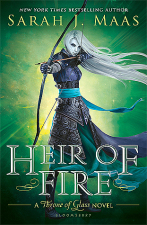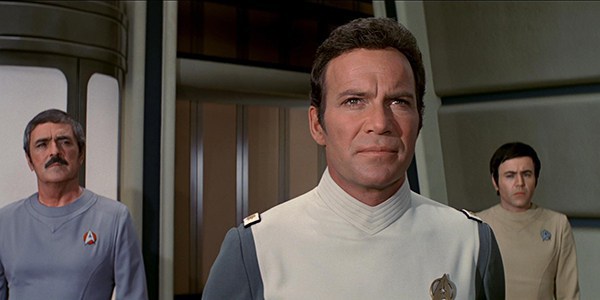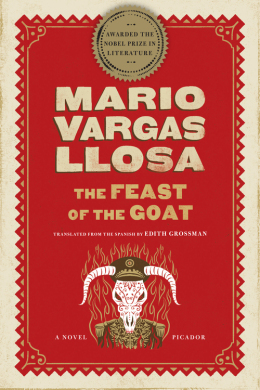 I really rather love David Mitchell. No real qualification to that, he just writes really well and it pleases me. However, this was his first book, and often that is a bit of a disappointment compared to a favourite author’s later work – Sanderson, for instance, is not quite polished in Elantris when compared with his other works (Mistborn aside, as that’s just an aberration). So I may have been worried, a little… and as it turns out, totally without cause. I mean, sure, it’s not The Bone Clocks or Cloud Atlas, but it’s still really, really very good.
I really rather love David Mitchell. No real qualification to that, he just writes really well and it pleases me. However, this was his first book, and often that is a bit of a disappointment compared to a favourite author’s later work – Sanderson, for instance, is not quite polished in Elantris when compared with his other works (Mistborn aside, as that’s just an aberration). So I may have been worried, a little… and as it turns out, totally without cause. I mean, sure, it’s not The Bone Clocks or Cloud Atlas, but it’s still really, really very good.
In some ways, it has a bit of a flavour of Cloud Atlas to it – the book is a collection of short stories that are connected in various ways to one another, following a tenuous thread throughout. There are a lot of very subtle connections, and I am certain I missed about half of them when I was reading too quickly, but they’re there all the way through… sometimes as little as a song two characters listen to, other times you see the character from one story passing by as you’re reading the next. There are definite thematic links too, but they become much more slowly apparent as you get through.
What I did find interesting with this one is it took me a while to decide how much I liked it. The initial read of the first story is great, because all you get there is the well-written prose and good character development in a fairly short space of time, and you get fully engrossed in that particular story… right up until you switch. And it took me a while to get fully on board with the disjoint going from story to story. If it had been billed as totally distinct short stories, then maybe things would be different, but knowing they were connected and having to wait to find the threads (maybe until another story even further on – there isn’t one solid, consistent pattern to it) is a little disconcerting, and I wasn’t sure until about half way whether I thought he’d pulled it off or not. But the effect is cumulative, and you realise by then that there is so much subtle work being done, pieces fitting together all over, that it’s hard not to be impressed.
It’s been too long since I read something else of his to really recall if this fits in neatly with the usual prose style Mitchell writes. It has a gentle, flowing quality throughout – one of the binding features through the whole book – that contrasts with some of the more dramatic stories and serves to bring them more tonally in line with the more gently paced ones. It gives a sense of wholeness that I think is really necessary, but also a sense of surrealism or abstraction… a detachment, much like what I enjoyed in Sailing to Sarantium, that feeling that you’re never going to get excited by the book, but that it doesn’t matter. It’s soothing.
Well, right up until the one story written differently.
And that was my only real problem with the book. There’s one story fairly near the end that is written as if all spoken aloud by mainly one character (with a few interjections from others). But being totally dialogue (and totally dialogue very much conveying a character’s own voice) it sits outside the tone of everything else in the book. And it feels weird. The overall themes shift in that story too, and it’s the point at which it feels like everything changes… but in a way I found slightly too unsubtle. Part of this is because I didn’t really like the character who forms the bulk of the dialogue of that story – he’s brash, sexist, self-important, and he’s a radio presenter so it’s written as a very constant flow of very nearly stream-of-consciousness, which is just… such an overload compared to the calmer pace of what came before. And, well, if you don’t like a character and they’re about 90% of what’s going on… But it wasn’t just that. I wonder if it came too late in the book – it’s the penultimate story – for there to be much contrast again after… or maybe it should have been all change from then on? It just doesn’t sit quite right for me, and I’m not wholly certain why.
It’s also the point where I actually became a little confused by the story. The stream-of-consciousness format and the particulars of the characters way of speaking just got in the way for me, and I did find myself having to go back and reread some parts to double check I’d got the right idea. Maybe that was because I was reading with a glass of wine and a lot of background noise, but at the same time, that doesn’t normally stop me. I don’t know.
But it’s one chapter out of a fair number, and with one after it going back to what you’ve been used to, so for all I found it notably disjointed from the rest of the book, it’s easy enough to slip back into the flow for that last little bit.
One of the things that stood out to me, thinking about the character’s voice in the less good story, is how distinct Mitchell manages to make his characters feel while preserving that thread of continuity throughout. They feel real and human from the get go, and you get a sense of them very quickly (as is of course necessary when you’re dealing with short stories). They’re all compelling in their own ways, and flawed, so you can’t like any of them wholeheartedly… but you find yourself liking many of them nonetheless. Or wanting to read more of them to find out how they think, for the less likeable ones. And they run a wide spectrum of pleasant to grim, but all somehow intereting, if only in a “wtf” sort of way in some cases. I definitely have a favourite (Irish lady scientist of some amount of awesome), but there’s a lot to recommend many of them, and I’m quite sad they didn’t each get a whole book.
Each of the stories does do a lot of work to paint a character picture, which is a lot of the interest for me, but there’s also some genuinely good plotting individually, as well as in the grand scheme slotting it all together. They work as distinct, unconnected stories just as well as they do together, and I think that must have been a pretty difficult feat to achieve.
Overall, it’s a beautifully written set of short stories that flow together into a surprisingly coherent whole. I love the characters, the tone and the pacing, and if not for that one story that sat off with me, I’d have considered giving it five stars. As it was, it’s a four, and something I know I’d get more out of if I read it again.
Advertisements Share this:




